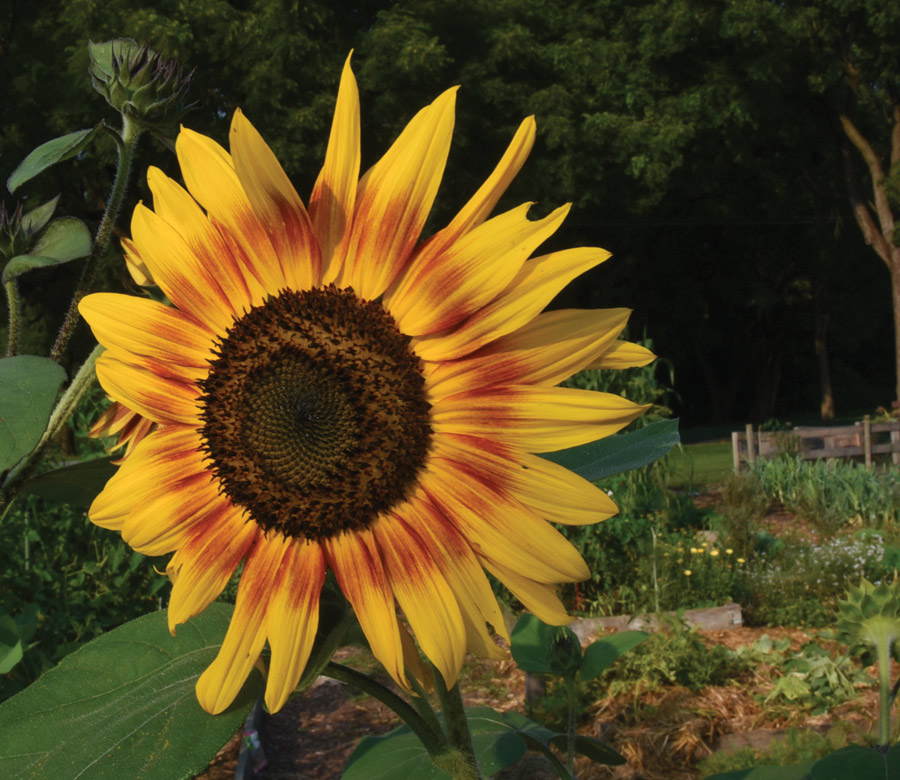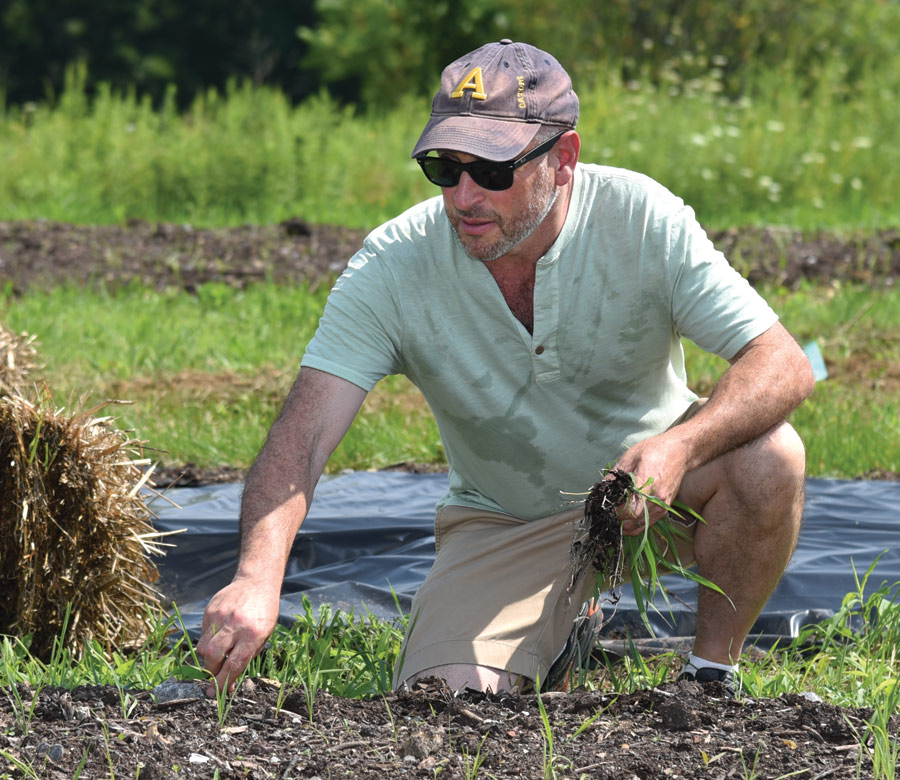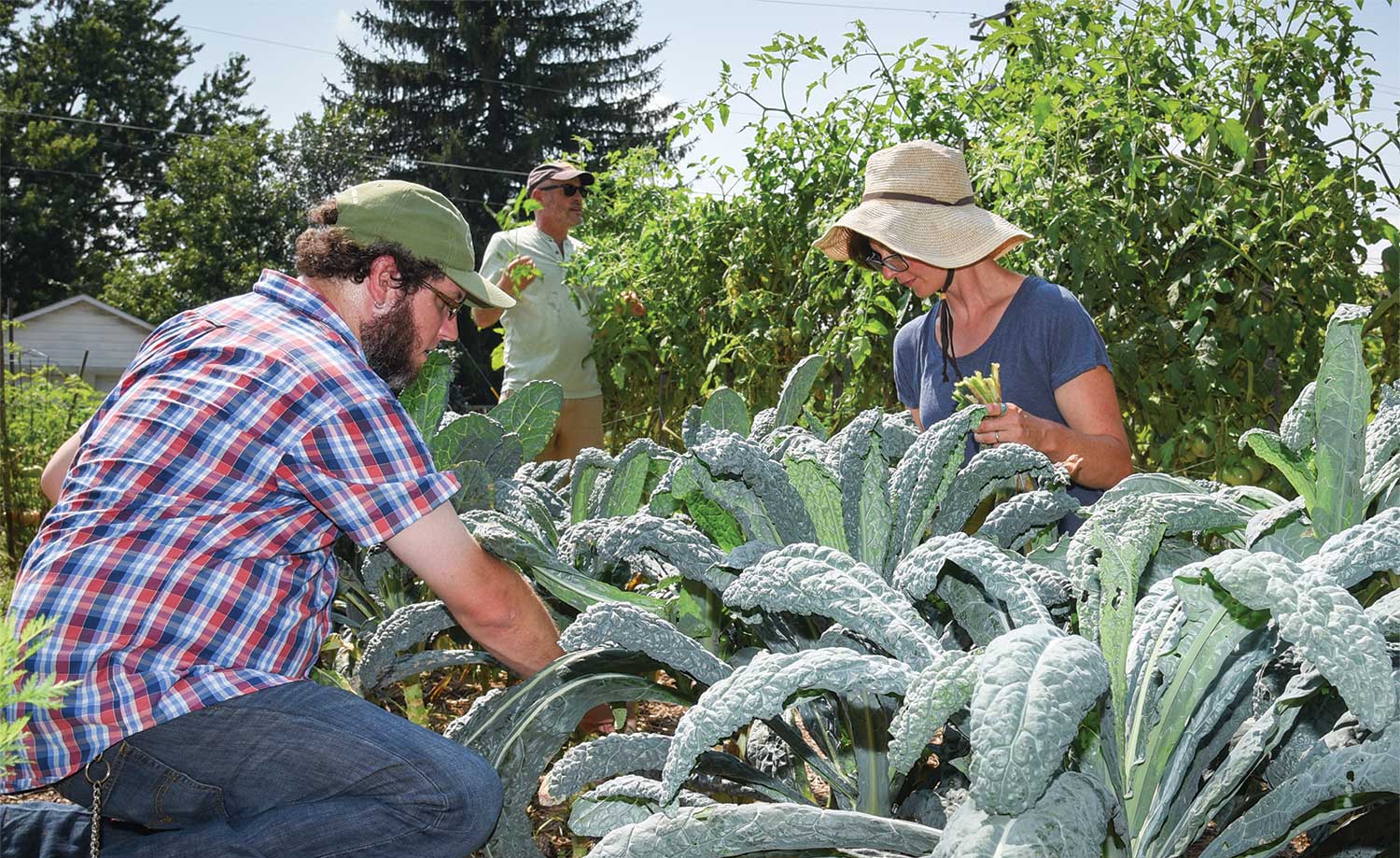ix years ago, Bucknell planted a seed. That seed became a garden. And soon, it will grow into a farm.
This summer the University began construction on a 5-acre campus farm on a grass-covered hilltop above the recently opened South Campus Apartments, providing fertile ground for academic connections, sustainable food production, student life and wellness, and community engagement.
The Bucknell faculty and staff behind the project describe it as a natural extension of the Lewisburg Community Garden in downtown Lewisburg, a collaboration between the University and the borough begun in 2012 to address local food insecurity. In 2017, the garden donated 3,800 pounds of produce with a market value of more than $10,000 and provided ample opportunities for student projects and service-learning.
“We think of these programs as being complementary — their missions are not identical, but they are congruent,” says Kyle Bray, assistant director of service learning and one of the farm project’s leaders. “As the garden has begun to fill more roles and provide more services, we’ve realized there are things the garden can’t achieve — but a larger, on-campus space can.”



Above, bottom: Mark Spiro pulls weeds from a test bed at the campus farm.
“Food is a wonderful theme, because it unites diverse faculty from across disciplines,” says Professor Steve Jordan, biology, an academic co-coordinator of the Residential Colleges.
Organizers of the campus farm project believe it will further educational opportunities and unite diverse disciplines on everything from long-term research projects to locavore dining to outdoor music and arts performances. To help get them up and running, in March the University hired Jen Schneidman Partica, who was a part-time community garden coordinator, as its first farm & garden coordinator. Partica envisions the farm will provide “opportunities for research not only in the natural sciences but also in the social sciences and humanities, as economic, cultural and political factors affect how we grow and access food.
“The farm provides a unique opportunity for students to see the intersections of their studies,” she says. “In a farm, every decision has a ripple effect.”
Interest from Bucknell’s faculty supports that contention. Farm organizers have heard from 45 professors from all three of Bucknell’s colleges who want to use the farm in their classes and research, and they plan to consult with faculty to develop more opportunities to do so. They’ve also received encouraging philanthropic support from alumni, including Rich Robbins ’70 and Madeline and Bill Morrow ’70, a Bucknell trustee.
They’re hoping to deepen and extend the sort of experiences that students such as Avery Snyder ’18 had through the community garden. A longtime student worker at the garden, the biomedical engineering major also sat on its community advisory board.
“It’s so important to be able to teach people where their food actually comes from, and I think having a campus farm will increase the opportunities for students to work with sustain- ability initiatives,” she says. “I can’t wait to come back in a few years and see how much it has grown and changed.”


“Basically we’ll be closing the nutrient loop — preventing waste from going to the landfill and converting wasted food back into food by reclaiming its nutrients,” says Professor Mark Spiro, biology, another of the project’s key leaders.
The organizers realize that the project won’t blossom into a fully functional farm overnight, and they plan to sow their fields deliberately and thoughtfully. They’ve established a 22-member oversight committee of students, faculty and staff, and spent this summer testing and improving the fertility of the soil. In the coming year, they’ll work closely with Bucknell Facilities to design a site that takes full advantage of the hill’s potential.
“It’ll never be fully done,” Spiro says of the project. “There’s so much we want to do with the farm, but we are taking our time to make sure that it becomes a true University-wide farm.”